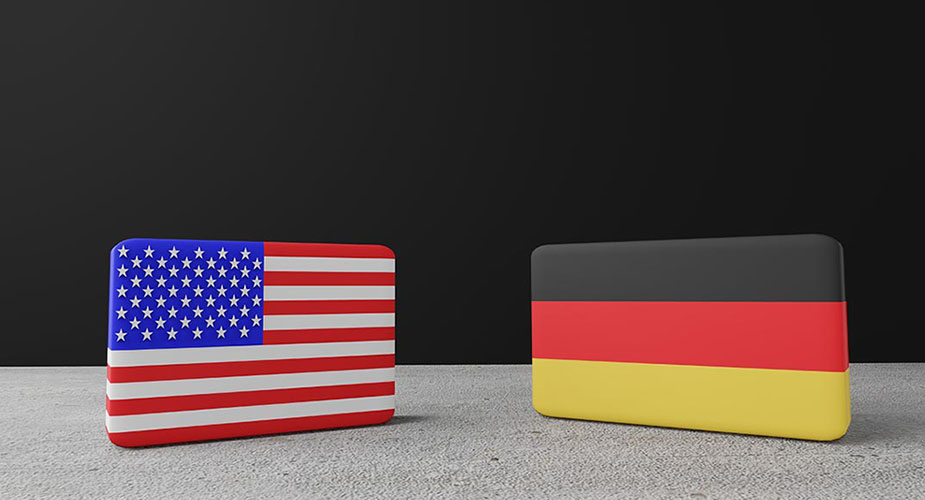- November 2, 2022
Moving to Germany from the US
Germany was ranked the seventh most popular country to relocate to in the HSBC Expat Explorer Survey. Germany has a lot to surprise people with its diverse culture, high standard of living, and hearty cuisine. Germany, hailed as Europe’s economic powerhouse, will be different for those from the US. It can exceed American norms in every area, including education, healthcare, and even working hours.
While moving to a new place might be thrilling, it can also be difficult. After all, the chance to relocate more than 1800 miles from home to another continent is not insignificant. For those who have decided to embark on this new trip, I’ve compiled a list of seven facts about Germany. I hope it will be useful to you.
1. Living expenses will come as a relief.
You’ll be relieved to learn that living expenses in Germany are significantly lower than those in the US. According to a poll, buying groceries in Berlin is 50% less expensive than doing the same in New York. This is a delight for folks who are planning of moving to Germany from the US.
Despite the crises that followed COVID-19 and the Russia-Ukraine War, Germany remains one of the most affordable countries in Europe. More savings than you currently have are to be anticipated. You are in for a major relief if you’re an American used to spending outrageous amounts for groceries, utilities, and other expenses.
According to a poll by Expat Insider, the cost of living in Germany is generally quite affordable compared to other developed countries. This doesn’t imply that their quality of life is compromised. It’s considered one of the best among European nations.
2. The educational system is unique.
23 German colleges secured spots on the top 200 list of universities worldwide, according to a Times Higher Education poll. Therefore, you know that German universities are among the best in the world. Germany’s 16 federal states decided to abolish tuition fees in 2014.
So, yeah, education is free in Germany. Without paying tuition costs, you can earn a degree. If you’re concerned about the caliber of education, you should know that Germany ranked in the top 25% of OECD nations in reading, arithmetic, and science in 2016.
Students can select from various courses at top institutions to further their higher education, primarily sponsored by the state. Additionally, free education is available to international students, as is the opportunity to work while studying.
3. Accessible medical treatment
We know how expensive a healthcare system may become for US citizens. The US healthcare system was graded lower than Germany’s by the World Health Organization. What distinguishes Germany’s healthcare system from that of many other developed nations? Because Germany has a universal health coverage system, everyone can access medical care there.
One of the most effective healthcare systems in the world is found in Germany. To begin residing in Germany, you must obtain health insurance from a public or private company. When you sign up for their healthcare system, you will receive an ID that you must present each time you visit a hospital or have a doctor’s appointment. Moving to Germany from the US can help you prioritize your health.
4. Start taking recycling seriously!
Germans are highly passionate about recycling. The Germans recycle an impressive 70% of all household garbage. Learn about the recycling process while you’re there because it’s well-organized. Bottles, cans, plastic, paper, cardboard, and bio-waste can all be placed in color-coded recycling bins.
Google the German “Green Dot” recycling program. In addition to recycling at home, you are urged to return plastic bottles to the retailer where you bought them. You will receive a refund of your deposit. Pfand is the abbreviation for the deposit that is added to the cost of glass or plastic bottles, and you receive your deposit back after returning the bottles.
5. The peaceful hours
Like the Ruhezeit, some German laws can be somewhat peculiar. In Germany, the quiet times are referred to as Ruhezeit. Interested in what that is? It is required by law in Germany to designate a specific time of the day as the quiet hours. It is illegal if you create a commotion or ruckus during that time. It is applicable every day of the week, even Sunday.
Although different localities have set times for Ruhezeit, it is present everywhere. Find out when it is quiet in the area you are relocating to. When you are moving to Germany from the US, you would want to know more about their quirky laws.
6. Holidays
A great work-life balance is provided to German employees. In Germany, the proverb “All work and no play makes Jack a dull boy” is regarded very literally. During Sundays, driving trucks and other forms of noise pollution, like drills, have been outlawed. It might surprise you to learn that many stores are closed on Sundays. The atmosphere on Sundays and other holidays is relaxed. For German employees, paid leave is also available.
In Germany, you are entitled to a minimum of 20 days off without having your pay reduced. Additionally, they have many public holidays that allow workers to have a great time. Germany earned an amazing 8.4 out of 10 compared to the other OECD nations in terms of work-life balance. Since no regulation requires paid leave in the US, this can sound like a dream for people moving to Germany from the US.
You will also need to work fewer hours in addition to the holidays throughout the working days. You won’t have to slave away for a paycheck if you relocate to Germany. They have a flexible work schedule and fewer hours worked per week on average than many other developed nations. Germany surpasses the United States once more in the minimum wage category. The minimum wage is approximately €9.19 ($10.30), which is almost 50% more than the federal minimum wage in the US.
7. Carry cash
Germany is regarded as Europe’s economic powerhouse and a leading center for technology. Additionally, it is the home of specialized automakers like Porsche, Volkswagen, Audi, and BMW. But it’s odd that a nation that is so tech-savvy nonetheless relies so heavily on currency. Many businesses or retailers only take cash as payment.
Although the internet and mobile payments are gaining ground slowly, cash is still king. Therefore, remember to keep cash with you when you go to Germany. You can never predict when you’ll need money. When required to make all of their payments in cash, foreigners or tourists frequently find it inconvenient in Germany.
You should bring cash, especially if you want to visit a small business like a cafe or restaurant. In Germany, it’s said that money is king. Nearly 88% of Germans, according to a 2017 research, want the currency to continue.
Conclusion
One can never grow bored living a life that permits one to travel to different cities, continents, or even countries. When you get to live such a life, you get to encounter other cultures, traditions, and cuisine. The world is a vast place with many surprises to offer its citizens. It’s the start of a new chapter for people who have the opportunity to moving to Germany from the US.
You’re about to travel to a foreign continent with different national beliefs. Excited but perspiring at the same time? It’s acceptable to feel overwhelmed. You may go to beautiful places, take more vacations, lighten your financial load, and develop the habit of recycling, thanks to Germany. When moving to Germany from the US, you can always get in touch with Earthrelo, a considerate moving company, to make the process simple.
Also Read: How to Prepare for Relocating to Germany from USA





